Anyone who says ChatGPT is a threat to Google doesn’t know much about search engines. They don’t know much about Google and are just trying to create a disturbance. In this article, we will talk about the impact of ChatGPT on Google.
We all know that ChatGPT is now the fastest-growing product in the history of the Internet. Then Microsoft quickly integrated it with Bing. The new Bing is a bit like an AI assistant than a pure search engine. This high-end game gave Microsoft a taste of the long-lost sense of participation.
In fact, Microsoft actually has a pretty long history of working with OpenAI, the developer of ChatGPT. And Microsoft itself is actually one of the most significant investors in OpenAI. So, in addition to Bing, Office and Microsoft’s cloud services will all integrate AI. Why is Microsoft so excited? Twenty years ago, Google took the position of the number one search engine and then used a series of products to encircle and suppress Microsoft. Gmail, Chrome, G Suite, Google Maps, Google Drive, and other killer Internet applications have kept Microsoft in the shadow of Google. Of course, Microsoft itself is to blame for this situation, as it has no competitive products. The Internet Explorer browser, in particular, is too useless. Google was really invincible in the world back then, and its products were always so popular. Of course, there are also failed products like Google Plus. However, most of the products, combined with the killer feature of search engines, have conquered the world and created unshakable user habits.
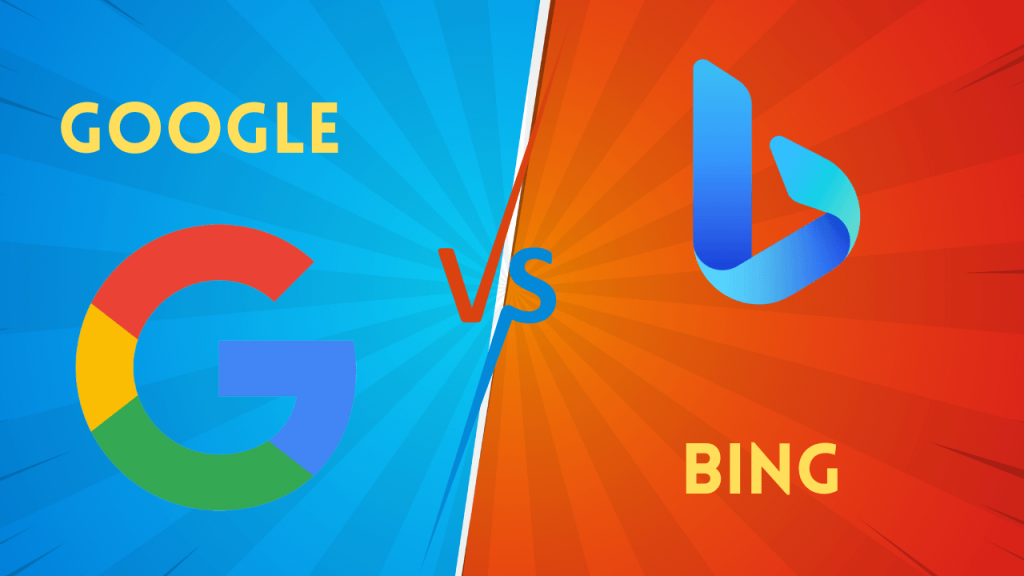
Will the new Bing Challenge Google?
Microsoft first challenged Google in 2009 with the launch of Bing, so the battle was big back then, but look at the market share now: Google is around 92% globally, while Bing only 6%.
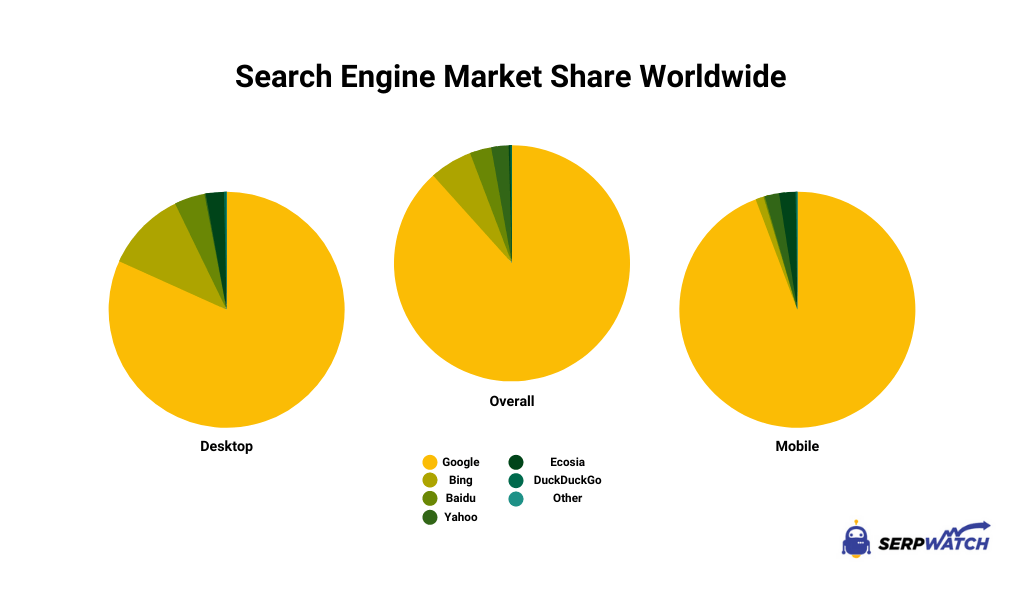
So now Bing wants to use ChatGPT to take on Google. Will it work? I’ll predict straight away that Bing will definitely skyrocket in terms of traffic, but it’s highly likely and almost certainly just a flash in the pan. People will come to see the buzz and then go back to using Google. But with the support of a big language model like GPT, Bing’s user experience and product quality will definitely be improved.
From my own experience, I can say that it is like adding a co-pilot or an AI assistant, as Microsoft said it would be. He can help you do some integration, filtering, and extraction tasks. It makes your entire search process more amazing, which is equivalent to having someone edit for you, which can be regarded as optimizing the search experience to a large extent. Of course, these things already existed before the integration of ChatGPT, but now they have gone a step further.
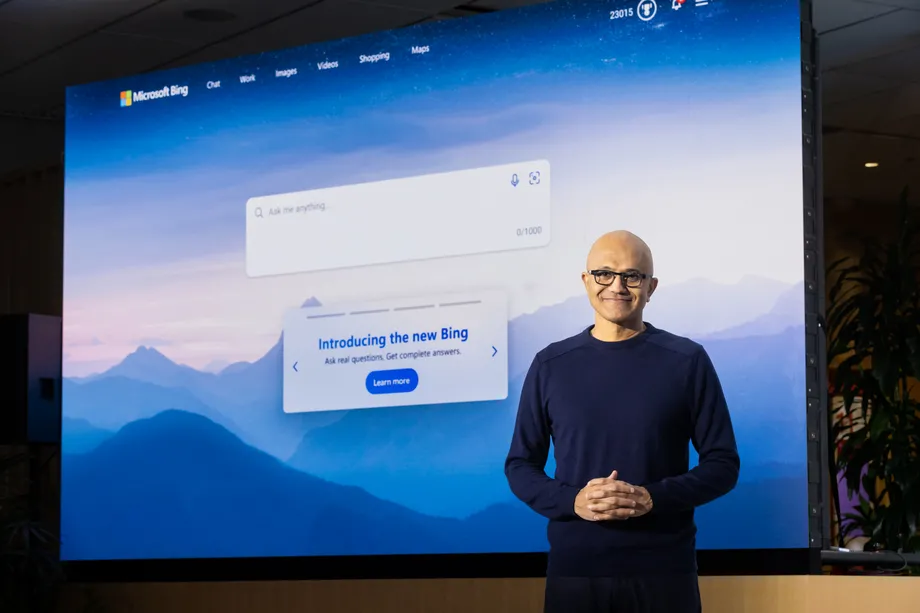
The main value of the ChatGPT integration is in two aspects:
- First, Bing’s search box is bigger, supporting 2,000-word queries and chat-based searches. This experience is not yet available on Google.
- Second, the Edge browser integrated with ChatGPT can achieve some auxiliary operations, such as extracting key information from a post and even helping users write minutes and emails.
These functions are based on the Transformer model’s semantic understanding and text generation capabilities. I think these are really great updates, but why do I think they still can’t beat Google in terms of search after all?
Why can the new Bing with ChatGPT not Beat Google?
First, Google’s library capacity is far greater than that of Microsoft. When I searched for “AI video upscaling,” Google returned 23.4 million pieces of information, while Bing only returned 1.23 million. Basically, more than 99% of Bing’s index numbers are not in the same order of magnitude as Google’s. So what does this mean? When my search requests are more complex and more diverse in meaning, the corpus available for query is not the same for the algorithm to exert its ability. So theoretically, Google has more potential to give more accurate or more comprehensive results with the help of AI.
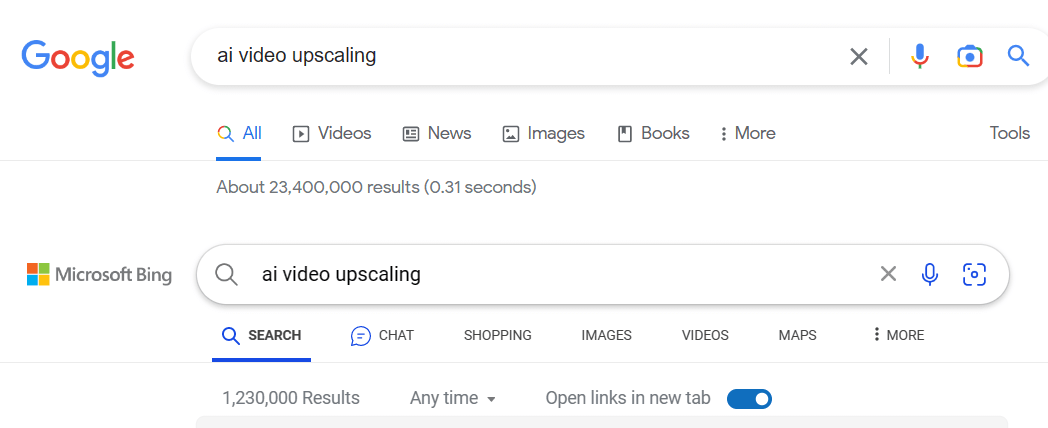
Second, aside from ChatGPT, Bing is definitely behind Google in terms of algorithms. SEO reveals this because SEO on Google is more difficult than on Bing. And Google’s algorithm updates with optimization improvements are frequent. So far, Bing still relies more on keywords, page titles, and metadata. But Google has mainly used technologies such as RankBrain and BERT to understand contextual content and enhance the accuracy of feedback.
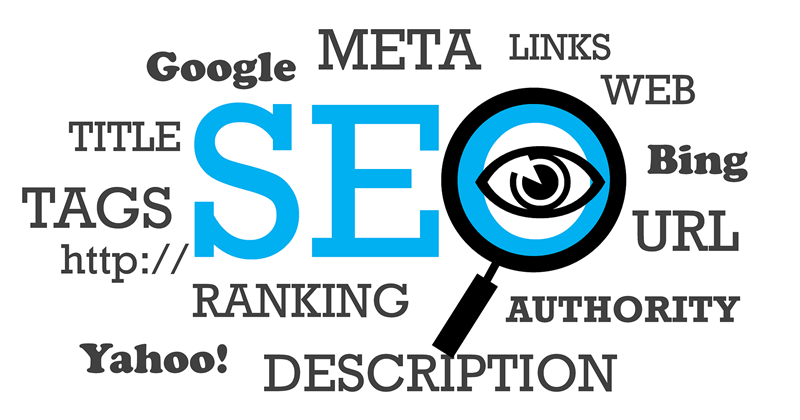
Third, there are large gaps in the SERP data. SERP means search results, and it corresponds to functions a search engine can provide, such as text, images, videos, maps, music, restaurants, applications, shopping, flights, and so on. After more than 20 years of serving people all over the world, Google has mastered the world’s largest database. For example, Google Scholar is completely incomparable to Microsoft for professionals.
Having said so much, we can see that, as a search engine, Bing is still not at the same level as Google. I don’t think Bing will do much to challenge Google by integrating ChatGPT. Microsoft has just strengthened its own product features as its greatest value.
Can ChatGPT beat Google?
With such foreshadowing, let’s look at ChatGPT itself. While it may be good for your business, is ChatGPT any threat to Google? This problem’s essence is a contest between chat-based search and keyword search because ChatGPT is a chatbot, and Google is a search engine. At the bottom level, both are crawlers. But the difference is that ChatGPT is like a man who understands everything; you can ask him any questions and then get the desired result through multiple rounds of dialogue. And Google is more like a library administrator. You tell him what you want to do, and he recommends a few books for you to read by yourself based on the index he built. Well, this scene now is a bit like the battle when Google faced Yahoo.
Is the battle between Google and ChatGPT like the one between Google and Yahoo years ago? Let’s talk about three things.
The 10-fold Rule
At the beginning of the post, we mentioned “unshakable user habits,” which are very important. Google’s daily active users are 4 billion, and the number of queries per year is 3.3 trillion. Coupled with Google’s rich product ecosystem, billions of people worldwide live on Google, and their work and lives depend on it. At this time, you want them to move onto another new path of information access, and you can imagine how difficult it is. According to the 10-fold rule, a new product must be at least 10 times more innovative than the old product or disruptive to have the potential to impact the latter. To change the habits of billions of users, at least ten times as much optimization is required. So at the moment, Google doesn’t have to worry about it at all.
Google itself is also vigorously developing AI
A long time ago, Google Search integrated many of its AI frameworks, such as BERT. These things are unconsciously affecting the search experience. Of course, BERT has now been upgraded to MUM, which is said to be 1,000 times stronger than the former. Many people know the GPT behind ChatGPT, but they may not know Google’s LaMDA, PaLM, Imagen, and MusicLM models.
AI is somehow a heavy industry
We may have overlooked the infrastructure behind it. On the one hand, AI requires a lot of computing power to accelerate, especially for large models, and its training cost is very high. On the other hand, the most basic data center is also a great investment. Google has deployed at least 2.5 million servers and more than 30 data centers worldwide to maintain its position. For a company like Google, building a data center is no less than investing in a factory. The water consumption alone is as high as 1 million gallons per day. Think about how large the “factory” can be. This results in a cost of about 0.2 cents per search on Google and about 2 cents per reply on ChatGPT. After Bing integrated ChatGPT’s technology, the cost of a single search is said to have increased by seven times. So this is indeed a money-burning business.
From these three perspectives, I believe ChatGPT will find it difficult to compete with Google on a commercial level.
The most realistic problem is that the company behind ChatGPT, aka OpenAI, has to survive first, simply because this kind of business is really cash-burning.
How powerful is Google's AI technology?
Here, I’d like to continue with the issue that is not thoroughly explained in the foregoing: how powerful is Google’s AI technology?
Let me start by saying that ChatGPT does not pose a threat to Google. Behind a big language model is a huge amount of human investment in reinforcement learning. Regarding a chatbot project, the fact that Google has not invested too much in this matter does not mean that he cannot do it.
Alphabet, Google’s parent company, currently has two AI departments: Google AI and DeepMind, which is the developer of the famous AlphaGo.
Google’s earliest developed model, BERT, has been open-sourced and later upgraded to MUM. These models are all integrated into its search business to improve the quality of searches, so it has not been transformed into a specific product in the form of a chatbot.
Bard, which is based on Google’s LaMDA model, was just put out to compare with ChatGPT. We discovered that in a test conducted by The Economist, Bard outperformed ChatGPT in mathematical problems while ChatGPT outperformed Bard in common sense problems. Overall, there is no absolute advantage for either side to win.
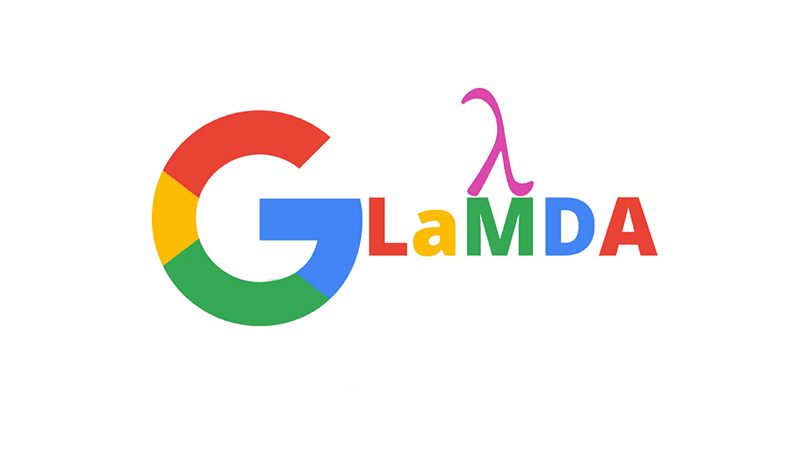
However, LaMDA is no longer Google’s most advanced model. PaLM (Pathways Language Model), with 540 billion parameters, is a classic architecture based on the transformer mechanism. But it’s designed to mimic the way the human brain handles tasks, and it is now the most powerful model.
What Google wants to do is have a model that can implement multiple tasks, multiple modalities and is sparsely activated. According to publicly available information, it can explain where the punchline of a joke is, it can do reasoning, it can fix bugs in the code, and so on. This thing is actually a generation beyond GPT in concept. So I said that technically, ChatGPT is not a threat to Google, at least for now.
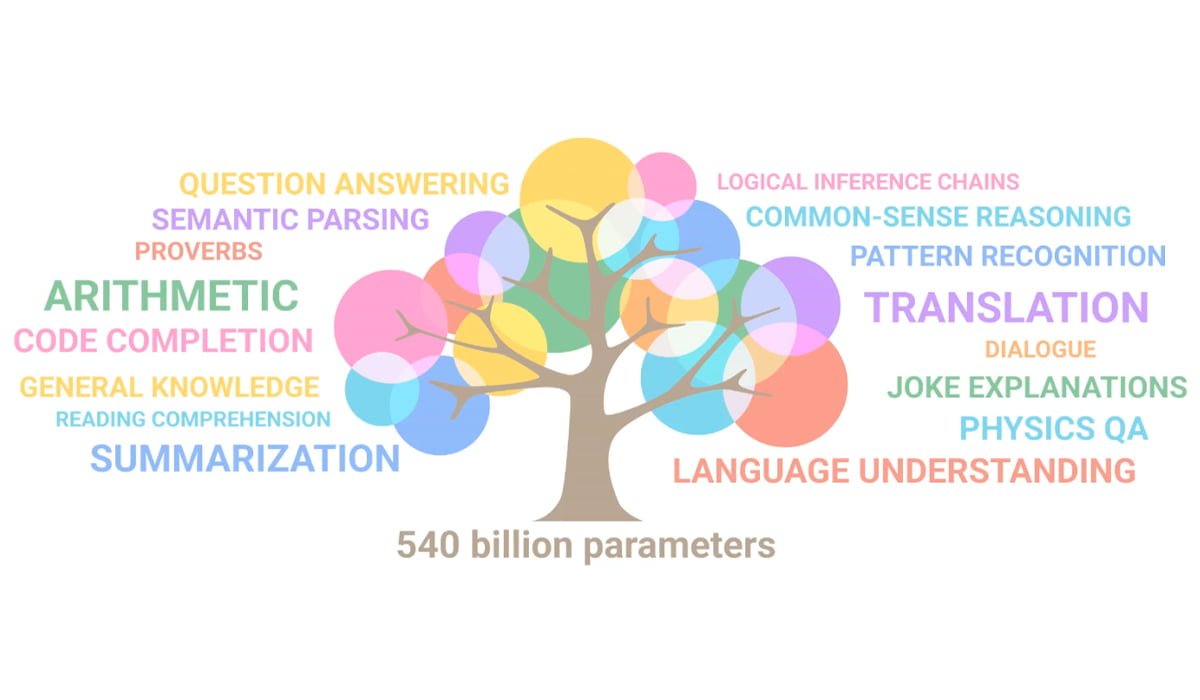
Who does ChatGPT threaten?
ChatGPT is probably not a threat to Google. Because Google is more than just a tool; it is a massive market in its own right. Google has not only disrupted the way people get information but has also disrupted the advertising industry. ChatGPT is actually quite difficult to create as a new financial model for the advertising industry, which is now heavily reliant on Google.
Who is ChatGPT threatening? Apple! Siri is not far behind ChatGPT, and Apple should focus on its AI assistant in the future.
Summary
Google is now in a state like Microsoft years ago. No “Next Big Thing” was ever launched, even though there are papers published one after another. Indeed, in the field of AI, Google really has not launched such products directly to the user. However, it seems to be somewhat resting on its laurels. Google does not seem to feel the sense of crisis, because of the untouchable position of the search busines. Now, ChatGPT is not a threat to Google, I think, but it does give him a wake-up call. When you were still standing on the technical high ground and publishing papers for everyone to admire, there was a start-up company that had already worked hard with your papers and produced a phenomenal product.
This means that in the field of AI, Google should be prepared to start a second business, provided that its existing bloated group system still has such awareness. Otherwise, it’d be like a scene from the American drama Silicon Valley: a wealthy Internet company can’t compete with a small company in a specialized field. Although Google has strong technical strengths in the field of AI, it is too scattered.
